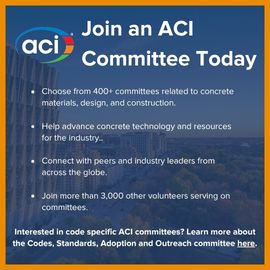
Primer on Code Council standards development: Finalizing the standard and appeals
![]() Through this primer series on the standards development process, we’ve covered the process from the identification of the need for a new standard through the development process. This final installment covers the process for getting the standard designated as an American National Standard (ANS) and how any appeals are addressed. Once these steps are complete, the standard is published and future editions are developed through the updating process.
Through this primer series on the standards development process, we’ve covered the process from the identification of the need for a new standard through the development process. This final installment covers the process for getting the standard designated as an American National Standard (ANS) and how any appeals are addressed. Once these steps are complete, the standard is published and future editions are developed through the updating process.
As discussed before, the American National Standards Institute (ANSI) manages the process for approval of standards as an American National Standard starting with the approval of a standards development organization’s consensus procedures, the issuance of a Project Initiation Notification System (or PINS) notice for new standards work and providing notice on standards activities through ANSI standards action.
While the entire standards development process may be conducted with the intent of achieving an ANS designation, that recognition is not given until necessary documentation is submitted to ANSI showing that the process was followed. Once submitted, ANSI will review the documentation and issue the designation.
One of the core principles of standards development is affording due process. Due process extends through the development process to allow for appeals. The process for appeals is outlined in the International Code Council’s Consensus Procedures and includes an internal process within the Code Council and a process within ANSI. Appeals on standards are strictly based on whether the development process followed the ANS designation requirements and not the technical aspects of the standard’s content.
If questions arise on the technical content of the standard, interpretations from the development committee can be requested. Only official committee interpretations can be relied upon. A request for committee interpretation shall be submitted to the Code Council Secretariat. Once determined to be a proper interpretation request, a draft response will be prepared for the committee to consider and vote upon. If an interpretation is issued, it will be made publicly available through the Code Council and ANSI.
To file an appeal, the appellant must file a complaint with the Code Council Secretariat outlining the action or inaction and how the action or inaction has caused damage, and the steps that could be taken to rectify the complaint. The appellant shall receive a response to the appeal within 30 days of its filing. If the complaints cannot be addressed informally, a hearing with an appeals panel may be requested. The appeals panel will be made up of three individuals not directly involved in the disputed matter and with no material interest in the outcomes. The appeals panel will hear the arguments and issue its decision within 30 days. The appellant has the right to further appeal to ANSI in accordance with the ANSI essential requirements.
This concludes the cycle for the development of a standard. The development of the next edition of the standard may pick up on a determined timeline or the standard may be considered under continuous maintenance whereby potential updates are considered on a rolling basis and updates are issued as they are approved by the standards development committee.
For updates on standards being developed by the Code Council and for access to key documents guiding the process, please visit www.iccsafe.org/standards.








